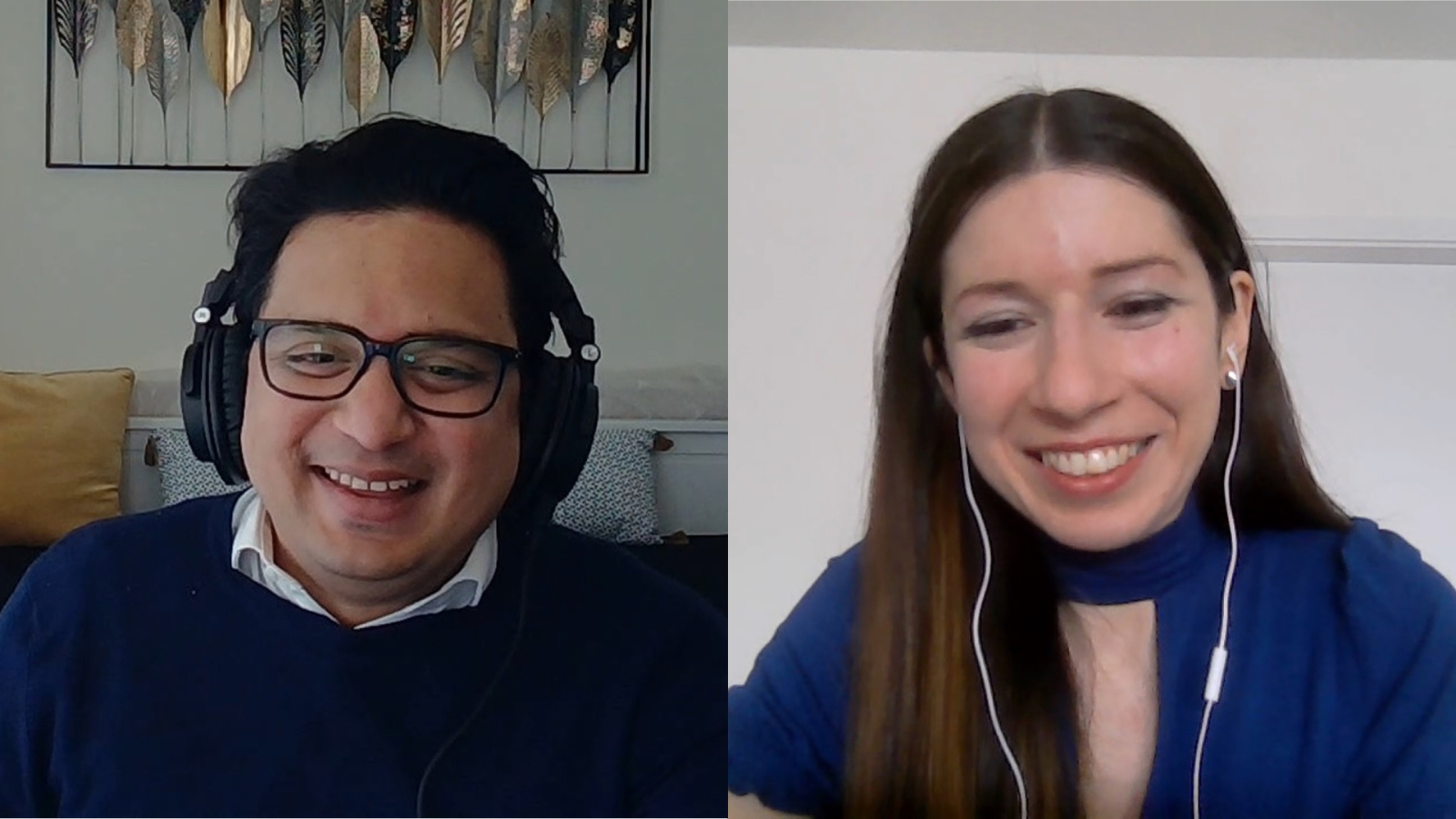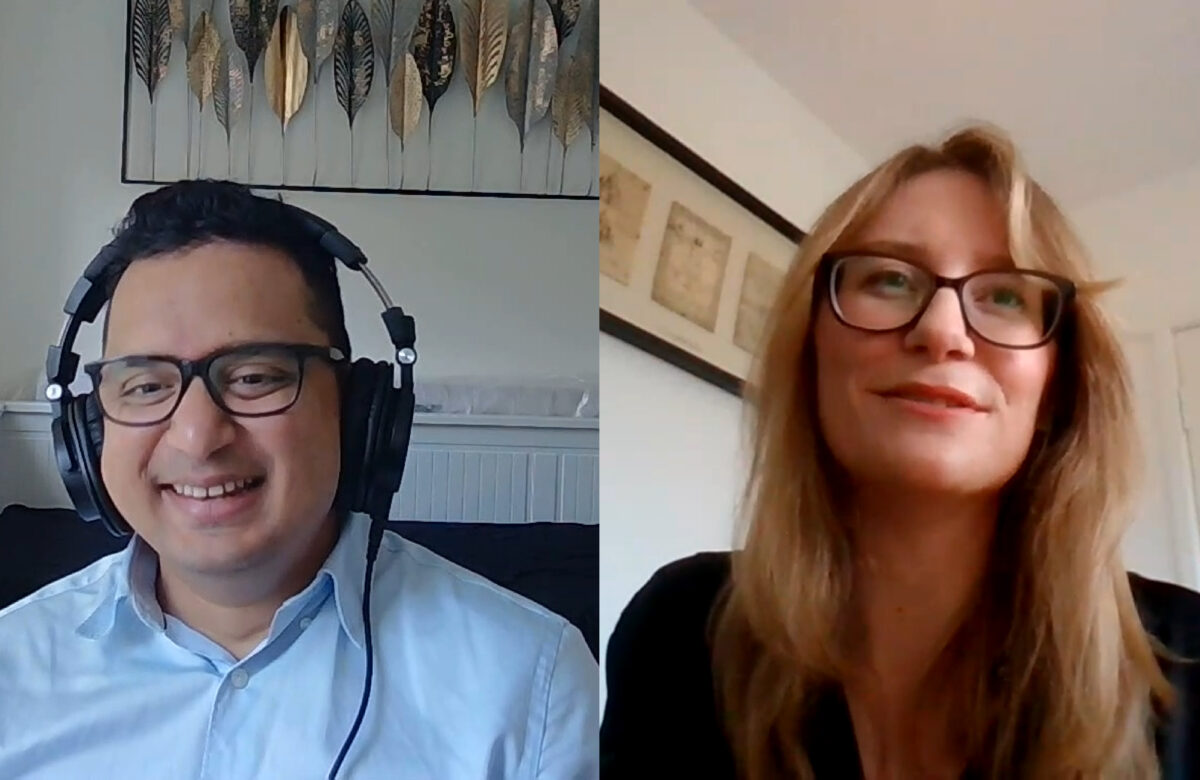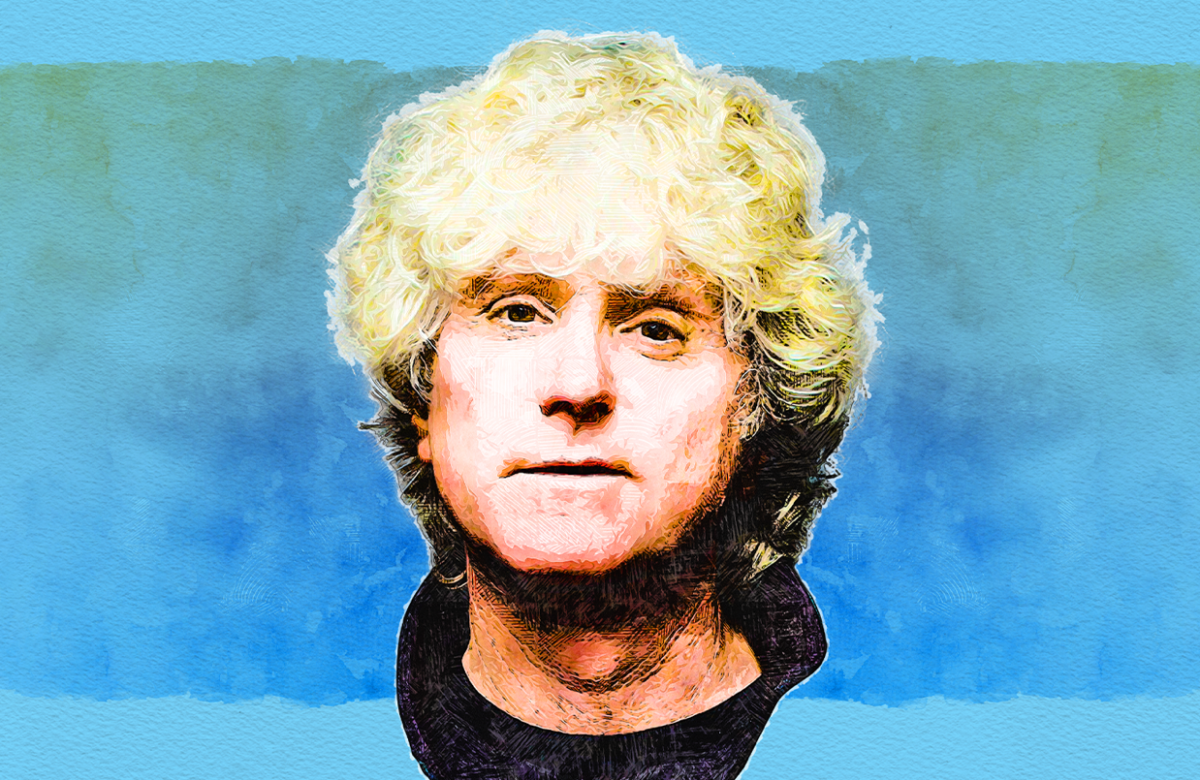Research Integrity and Article Retractions with Dr Marie Soulière
- Podcast
- March 14, 2022

Has a recent spate of article retractions got you concerned? Join host Nikesh Gosalia and guest Dr Marie Soulière as they talk about the nitty-gritty of article retractions and maintaining research integrity. In this discussion, they chat about the different perspectives to article retractions, alongside the implications of mass retractions, whether financial or reputational. They also discuss balancing these implications against the credibility of the journal.
Dr Soulière talks about her experience with the pressure to publish – faced by academics worldwide – and how this ties in with producing ethical research as well as about taboos around retractions. Finally, the discussion ends with another trending topic in the publishing world – the use of tools to streamline publishing operations by ensuring better quality control.
Dr Marie Soulière is the Head of Publishing Projects with Frontiers. She has a PhD in Chemical and Computational Biology, 12 publications, and several presentation awards. With her 10 years as a manager in the publishing industry and position as Elected COPE Council Member, she is a well-established figure in open access publishing. She can be reached at LinkedIn
Enjoyed this discussion and want to hear more from Dr Marie Soulière? Tune in to Part 2 here.
Nikesh Gosalia
Hi, everyone. Welcome to All Things SciComm!! All Things SciComm is a weekly podcast brought to you by ScienceTalks, a media platform that aims to make science accessible to everyone. In this program, we dive into the latest from the sci-tech world.
My name is Nikesh Gosalia, and I am joining you from London.
Today, I am chatting with Dr. Marie Soulière. Marie is Head of Publishing Projects with the Open Access Publisher, Frontiers. In 2020, she was elected as Council Member to the Committee on Publication Ethics, which is widely and famously known as COPE. Marie holds a Ph.D. in Biochemistry from Canada’s University of Sherbrooke and did research in biophysics in Austria. She has tremendous experience in scholarly publishing, especially around research ethics and the use of tech tools and AI. Marie also tells me that she is a nerd. She told me that she has even applied to be eSports Manager for games like StarCraft and World of Warcraft.
Today, we are going to tap into her unique perspective that lies at the intersection of research integrity, technology, and editorial operations.
Welcome, Marie.
Marie Soulière
Thank you, Nikesh. Pleasure to be here.
Nikesh Gosalia
Thanks, Marie. Let’s get started.
Every now and then, the industry is shaken up by a spate of article retractions, a particular publisher having to retract dozens of articles or even hundreds of publications. Anyone who is not part of maybe the science community would find this to be outrageous. They must be wondering how can there be such a large-scale breakdown in processes. What do you think are some of the recurrent reasons for such incidents? Then, of course, we will talk a little bit about the solutions to tackle this.
Marie Soulière
Yes, this is really a big question with publishers right now. Maybe, first for our listeners, I will explain shortly, what retractions are.
The way we learn about scientific discoveries and the research that is performed in labs and clinics and in the field worldwide, is when researchers actually sit down and write up their research. They then publish as articles that we can read in journals. These articles are checked by editors and validated by peers before they can be published. This is what we call peer review. Sometimes, after an article is published, we discover that their research was incorrect or manipulated in some way, and that there was some sort of ethical misconduct that makes it impossible for readers or publishers even to make sure that the article is actually valid.
In those cases, articles end up being retracted which means that we take them offline from the public records so that the results are no longer used by others to build upon for further research.
You mentioned in your question cases where journals end up retracting dozens or hundreds of papers and what this means about the processes and if there are any recurrent reasons for this.
From my experience, there are two main categories of reasons that I have encountered.
One is really the issues from the editorial side, the publisher side, and the other one more from the author side.
From the publishers or journals, there can be a lack of knowledge or guidance on what are the best ethical practices. Most journals have active researchers as editors on their boards, and these editors might not know to look for ethical issues like plagiarism or trying to avoid conflicts of interest that can affect the readership. There can also be active fraud from editors, unfortunately, where they want to publish a series of articles from their friends without validating them with proper peer review. Or they can manipulate authors and adding citations to their own work before accepting their paper.
These cases are often then reported by readers who will read a paper and then doubt the validity of the published article after noticing that, for example, there is a particular special issue that has articles that cite the editor an unusual large amount of time. Then, when this happens, usually, publishers investigate, and they might find the peer review to have been compromised and that there were serious misconducts. At that point, you have to retract a series of articles.
From the other side, we are talking mostly about cases of willful fraud or misconduct. Unfortunately, some of it comes from pressure that is put on researchers to perform to a certain level or publish a certain amount of papers to maintain or gain positions. As you say, when readers see cases of misconduct, they find it outrageous. Even us as publishers, we do. It’s become a big cat and mouse battle where publishers try to fight misconduct, and authors develop more ways to evade verification. There are also general tools that are developed that help authors with this.
One type of cases that comes to mind right away is the manipulation of images. It used to be very crude copy and paste or rotation of images. But now, with the images software that we have, there are, I mean, frankly, authors who really want to create images they can and there is very little way for us to know whether they are real or not with the human eye.
But sometimes, publishers will also get tools that allow them to discover these elaborate misconducts. Then, this tends to trigger a sweep of several papers. If you find one case that has an issue with an image, you then might go through all the cases in the special issue or all the cases in the journal overall, that were published in the past. What then appears from the exterior as a failure in the process tends to come from these types of issues when there is a misconduct and then tools become available to detect it, and when we do a sweep of past publications which then might result in a series of retractions that all appear at the same time.
Nikesh Gosalia
Thank you. Thank you for that, Marie. I think that was a very good understanding that the listeners will benefit with in terms of how there are two different perspectives to retractions.
Just before I move on to my next question, because you have been a researcher yourself and you have kind of gone through the rigors and you have done your Ph.D., did you notice this with your fellow colleagues or students and friends that there was always this pressure to kind of get published. Any thoughts on that, before I move to the next question?
Marie Soulière
Even in my own experience, not even colleagues, but myself, it was very clear in applications, even for a postdoc, that you needed to have a certain number of articles published as a Ph.D., to be even able to apply for a postdoctoral fellowship. I myself was a recipient of the Marie Curie EMBO fellowship and then one in Austria as well.
I remember clearly in the interview I had with a higher researcher who was supposed to make a decision on the application, and at the end, his final comment was, your application is really great, but you have not published in Nature or Science, so I don’t think you will get that fellowship. I did get it in the end, somehow. But this is the kind of comments that I would hear even 10, 15 years ago. This pressure has only increased over the years, I think, for researchers across the world, and this need to publish in high-impact journals and to publish a certain number of papers as well.
Nikesh Gosalia
Thank you. Thank you, Marie, for sharing that.
Having seen both sides, I mean, of course, the journal side of things, and you have been a researcher yourself, like we discussed, what do you think about potential solutions or best practices, perhaps, from the journal side?
Marie Soulière
What I have learnt these past few years was that really managers and editors have to keep in touch with what’s happening in the publishing world. Like everything else in the world, there are trends in fraud, and it’s important to learn about the kinds of misconducts that are happening elsewhere and to then look into whether they are happening in your own journal. The types of misconduct tend to evolve over time. Years ago, I remember, the main issue I dealt with as a journal manager was about plagiarism, plain text plagiarism. But as tools have evolved to catch these cases more easily and frequently, fraud then on this has diminished, but it becomes also more sophisticated on other things.
I would say my main crucial recommendation on best practice, both as the Head of Publishing and as a member of COPE, is to not dismiss complaints and concerns that you receive that are raised by readers, authors, editors, anyone really. Even unfortunate comments on Twitter that can get us very frustrated about social media and how people try to discredit your journal publicly. As frustrating as they are, you should go past that and take it seriously.
If you receive a complaint on any kind of purported malpractice in your journal, don’t dismiss it. Make sure you do investigate it. You might not like what you find, you might not want to then spend a year deeply investigating 50 of your articles, but it is a very important practice. At the end of the day, what we are supposed to be doing as publishers is to maintain the scientific integrity and the scientific record. We do a disservice to the entire world when we avoid investigating and retracting articles that are not valid. In the end, we just depollute the information available out there for further research and for the public.
Nikesh Gosalia
Absolutely! Thank you, Marie. I think that’s a very useful tip.
Just to kind of delve deeper into it, I am sure many of our listeners are also concerned about their financial sustainability. In your experience, do these practices make financial sense for either a journal or a publisher?
Marie Soulière
Yes, I think it does. I am not going to go back into what I see as the cost to society to keep invalid papers published. But I can say that there is, of course, an internal cost on investigation and time spent to handle retractions. But really, the main cost of retraction is reputation and potential reputational damage. How the retractions are done and communicated about is one of the crucial factors really about this. I know many publishers will have to weigh the cost of retracting and risking that reputational damage.
But they have to keep in mind that not retracting some invalid articles can also be a major reputational risk and maintaining the reputation of the journal when faced with these big ethical incidents is, I think, what will decide on the future sustainability of the journal. This is where transparency and data – scientists love data – doing transparency and data tend to go a long way in terms of ensuring you maintain your credibility and the trust from your researchers who will then want to continue publishing in your journals in situations like this. Then, one step down from that is the financial sustainability.
Nikesh Gosalia
In your opinion, Marie, do you think the industry as a whole or even COPE for that matter, are we doing enough to tackle this issue or are there things that we can – I mean, there is always scope to do more, but in your opinion, are we on the right track? Can we do more? If so, does anything come to your mind in terms of actionable steps?
Marie Soulière
I think there has been a lot of progress in the past few years. I think there was a big taboo around retractions from all sides. Authors didn’t want to retract. Publishers didn’t want to retract. There was this whole discussion about whether or not it should even happen in the first place. But it’s become a bit more commonplace in a good way, in the sense that authors are accepting that if they made a serious mistake, they can go to publishers and say, “Please retract my article, I made a mistake. Let’s just make sure it’s not spread to other research.”
I think that from scientists starting to do this, it has encouraged publishers as well to be more open about retracting, even cases of fraud, because it’s just becoming something that everybody knows that they have done at least once as a publisher, you would have to retract something for some reason. Once you do it once, it’s easier to have your standard procedure on how to do it, to know how to investigate, and to move forward. I think there has been a lot of improvements there.
Also, with the help of COPE, that have prepared, over the years, several guidelines to support the publishers and the authors on how to handle these cases. I think it’s less of a prominent issue at institutions as well, because the pressure came from the institutions also to publish but then also not to retract. I think there is less pressure there as well from the institution realizing that this is not because you retract the paper that you actually necessarily did fraud, it could be that there is just a simple mistake, which now we are good at putting these statements into retractions as well saying the authors said they made a mistake. This research just needs to be taken out.
Nikesh Gosalia
I have noticed that in many discussions around ethics, the topic that is missing is operational efficiency. I think we would all like to hear more tips from you about how to strike a balance between maintaining a certain ethical standard while also keeping operations streamlined.
Marie Soulière
It is a tricky balance, for sure. It feels like the story of my life.
I think there needs to be an open mindedness towards using tools to help streamline operations. Article publishing has been a very hands-on process for a very long time. But this has been the evolution for most industries going from strictly manual work to machines and engineering, to ensure efficiency and management and volumes, with then the addition on this of QC and QA teams for quality control and quality assurance throughout the process.
I think the same holds true for publishing. We accept it for the production of the food that we eat every day and the vaccines that we get shot with, so why not for the publication of articles. Now, there are software and tools that can do various checks and take manuscripts through the peer review process. You can integrate in that some verification of ethical standards, the ones that apply to the broadest number of papers without really losing efficiency.
Then, you need specialized teams as add-ons to this, like the QC and QA, to do the checks that cannot be streamlined as well or don’t apply to a large number of papers. Allowing these teams to have a specific focus in my experience on either operations or focus on research integrity really allows them to do their work better in a more efficient way. Actually, it maintains a higher level of research integrity because they tend to be able to spot trends and issues between articles, sometimes even between journals or special issues that might otherwise go unnoticed if you just look at the very specific part of the review process.
Nikesh Gosalia
Got it.
All Things SciComm is a weekly podcast brought to you by ScienceTalks. You can subscribe on Apple Podcasts, Spotify, and Google Podcasts.



